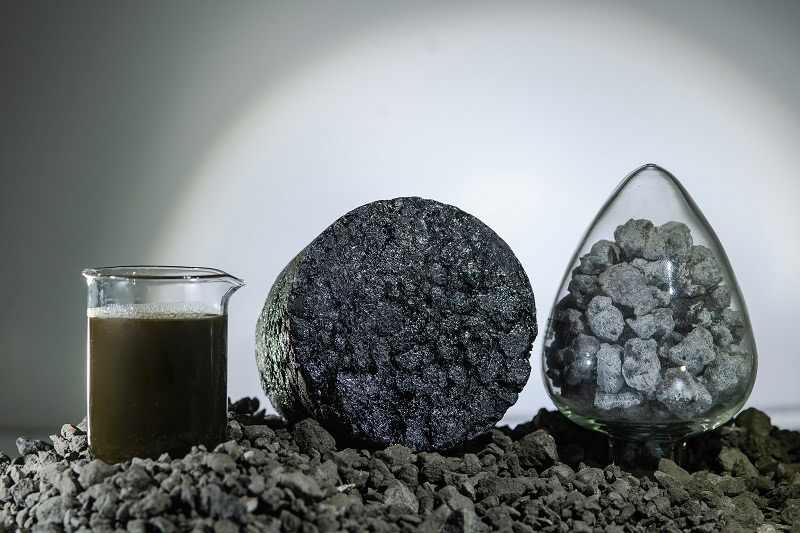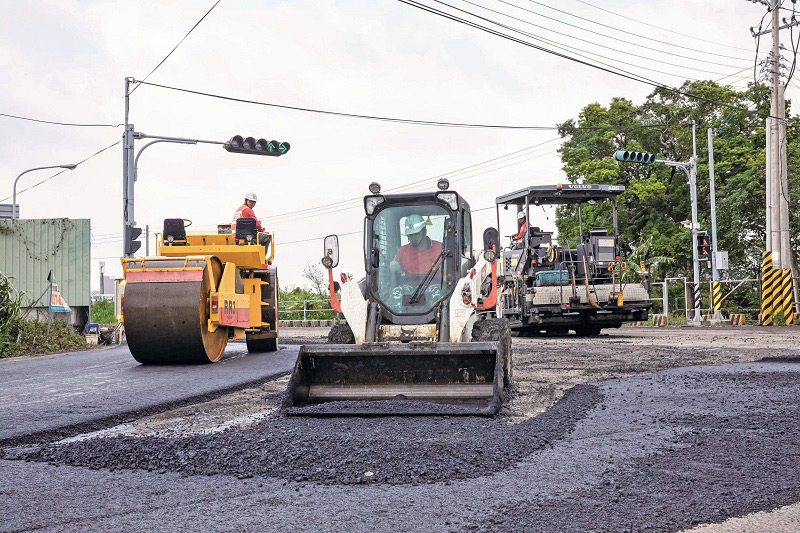R&D Focus
Reclaimed Asphalt Pavement Revives the Road

ITRI’s technology recovers 70% gravel and 30% asphalt from RAP while also rejuvenating the aged asphalt.
Repairing or repaving asphalt roads typically generates large amounts of pavement waste. In Taiwan alone, over 15 million tons of asphalt waste have been produced in the past three years. However, only 18% of reclaimed asphalt pavement (RAP) is reused in road resurfacing. To promote zero waste and a closed-loop material cycle, ITRI has developed a process that transforms RAP into new, high-quality paving materials using a gravel separation system and a bio-based rejuvenator. This Reclaimed Asphalt Pavement Regeneration Technology significantly reduces carbon emissions and dependence on imported gravel.
“Since public construction projects strictly regulate the use and quality of recycled materials, not all roads are permitted to incorporate them,” said Chih-Hao Chen, Business Director at ITRI’s Green Energy and Environment Research Laboratories. He also noted that some engineers, based on their past experience, consider recycled materials inconsistent in quality and potentially detrimental to construction projects. However, ITRI’s Reclaimed Asphalt Pavement Regeneration Technology tells a different story—it can recover 70% gravel and 30% asphalt from reclaimed asphalt, while also rejuvenating the aged asphalt to produce standard-compliant recycled materials suitable for public works.
Separating Asphalt From Gravel
Traditional methods of processing asphalt pavement materials are costly and non-sustainable. Separating asphalt from gravel usually requires expensive organic solvents, which can release volatile organic compounds that harm both workers’ health and the environment. “ITRI’s green separation technology replaces organic solvents with water as the separating medium, making the process more eco-friendly. We also developed a biological agent to optimize the process,” Chen explained.
Restoring Aged Asphalt
Gravel separation is only part of the solution; restoring aged asphalt is crucial to converting RAP into a durable material for road construction. ITRI developed a bio-based rejuvenator made from natural materials such as lignin and vegetable oils to rejuvenate aged asphalt, enhancing its ability to bind with new asphalt. Additionally, the rejuvenator lowers the mixing temperature from 170-200 °C to around 145 °C. This approach improves energy efficiency and reduces operating costs.
Prospects of Reclaimed Asphalt Pavement
Chen is optimistic about the future development of RAP. “New technologies create new business opportunities. Pavement waste treatment plants can adopt ITRI’s technology to become both suppliers of gravel and providers of recycling technology. ITRI is actively promoting this technology in international markets, particularly in Vietnam and other Southeast Asian countries. It offers a sustainable solution for places facing limited gravel resources and constrained space for material storage,” Chen said.

Reclaimed Asphalt Pavement Regeneration Technology provides a sustainable solution for road construction.
ITRI’s Reclaimed Asphalt Pavement Regeneration Technology is estimated to reduce annual carbon emissions by over 660,000 tons, equivalent to planting hundreds of thousands of trees. Using reclaimed asphalt pavement can also cut material costs by at least 30%. This breakthrough achieves an ideal balance between environmental sustainability and economic efficiency in road construction.